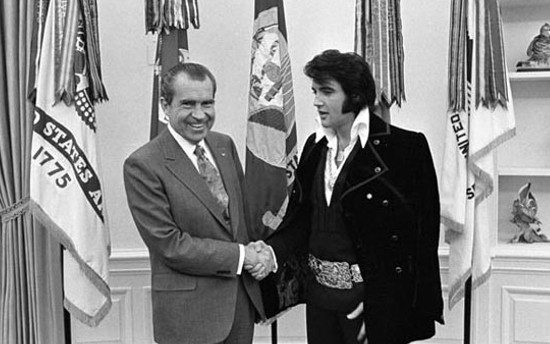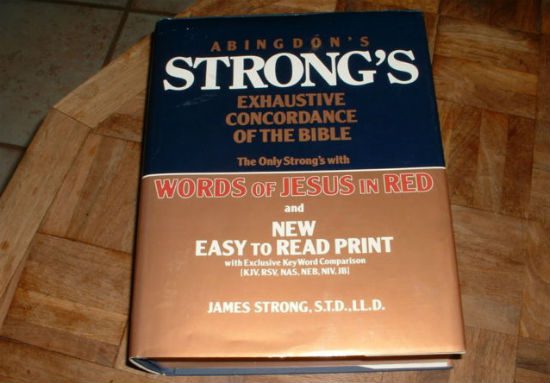The original version of this post, from 2015, began by recognizing Kay Starr as one of the few still-living artists included in the old-fashioned Christmas music playlist constantly looping at the Big Box during December. Alas, Kay Starr passed away the following year — more than half a century after her recording of “The Man With the Bag” became a holiday favorite back in the ’50s.
This is a song about waiting and anticipating, so if we squint a bit, we can think of it as something like an Advent hymn. Of course, all this waiting isn’t for the Nativity of Jesus. The titular “Man With the Bag” is, rather, Santa Claus.
Many of the most popular Santa songs are kind of Advent-y in this way. They advise or even command us to wait and watch and prepare for the One Who Is to Come, bringing Joy to the World and good will to all, etc. So perhaps it would be useful to look more closely at one of those Santa-Advent songs and see how it compares to the very first Christmas song/Advent hymn ever recorded.

Let’s go with the big one: “Santa Claus Is Coming to Town.” That song dates back to 1934 and it’s been a seasonal hit for Perry Como, Bing Crosby, the Jackson 5, and (my personal favorite) Bruce Springsteen and the E-Street Band. Whether or not you’ve ever intentionally learned them, you probably know all the words:
You better watch out
You better not cry
Better not pout
I’m telling you why
Santa Claus is coming to townHe’s making a list
And checking it twice;
He’s gonna find out
Who’s naughty or nice
Santa Claus is coming to townHe sees you when you’re sleeping
He knows when you’re awake
He knows if you’ve been bad or good
So be good for goodness sake …
Et cetera. And what is it that Santa will be bringing when he comes to town? Well, some versions of the song choose to dwell on the different kinds of toys he may have in his sleigh — “little tin horns and little toy drums,” one version suggests, while another verse lists “Curly head dolls that cuddle and coo / Elephants, boats and kiddie cars too.” But the word that jumps out at me is the one that harks back to that far older, first-ever Advent hymn. “The kids in girl and boy land,” the song says, “will have a Jubilee.”
Yes.
Granted, by the 20th century, that word “jubilee” had gotten watered down beyond all recognition. In context, I’m sure, it’s probably just meant to suggest a really fun time — a synonym for “party” that came to mind because it happens to rhyme with “tree.” But the word still carries a whiff of its original meaning — especially here, when anything less would seem like a let-down after all the jubilant anticipation the song encourages, and also considering this is a song celebrating the day on which we mark the birth of the person who claimed to be Jubilee personified.
But this promise of a coming Jubilee isn’t for everyone. Alongside that promise there’s also a repeated warning, almost a threat — “You better watch out.”
Both of those things — the promise and the warning — recur in that very first Christmas/Advent song as well. Here it is, Mary’s Magnificat, as recorded in the Gospel of Luke 1:46-55:
My soul magnifies the Lord,
and my spirit rejoices in God my Savior,
for he has looked with favor on the lowliness of his servant.
Surely, from now on all generations will call me blessed;
for the Mighty One has done great things for me,
and holy is his name.
His mercy is for those who fear him
from generation to generation.
He has shown strength with his arm;
he has scattered the proud in the thoughts of their hearts.
He has brought down the powerful from their thrones,
and lifted up the lowly;
he has filled the hungry with good things,
and sent the rich away empty.
He has helped his servant Israel,
in remembrance of his mercy,
according to the promise he made to our ancestors,
to Abraham and to his descendants forever.
Mary makes a list, and those of us reading Luke’s Gospel with 21st century American eyes will need to check it twice to see what it actually says. We expect Mary’s song and the rest of the Gospel to follow the pattern we’re accustomed to of blessings for the nice and punishment for the naughty. And so we presume we know what she’s getting at when she sings that God’s “mercy is for those who fear him.” And we presume we already know what that means.But look again at who makes Mary’s “Nice” list: the lowly, the hungry. And look at who the naughty list includes: the proud, the powerful, the rich. The poor and the lowly will have a Jubilee. The powerful and the rich will be brought down and sent away. We’re tempted and conditioned to layer all sorts of piously moralistic assumptions on top of that. But those layers aren’t there in the song. The poor and lowly are not blessed because they are also in some way virtuous. They are blessed because they are poor and lowly. Period. The rich and powerful, likewise, are warned that they will miss out on the Jubilee simply because they are the rich and powerful.
That’s pretty much the same thing we hear from the child Mary was carrying when she wrote that song. Think of Jesus’ parable of Lazarus and the rich man. Lazarus goes to Heaven (sort of — that idea wasn’t quite there yet). Why? Not because he was devout or pious or because he had prayed a sinner’s prayer and accepted Jesus as his personalordandsavior. He was a poor beggar and he goes to Heaven because he was a poor beggar. The rich man, on the other hand, didn’t wind up in “Hell” (again, sort of, because that idea wasn’t quite formed yet either) due to his failure to pray the words and accept his personalordandsavior. He goes to Hell for one reason exclusively: He was rich and he didn’t do anything to help people like Lazarus.
This is, in fact, what the Bible always says about “Hell.” Most of the Bible never mentions the idea. You won’t find anything about Hell in Paul’s letters or in the Hebrew scriptures (the Old Testament). The “Hell” stuff is almost exclusively from the words of Jesus in the Gospels, and in the stories and sayings where he talks about Hell it’s always in the same sense as the Magnificat or the story of Lazarus. Hell is never a danger to the poor and the lowly. It is, rather, a warning — a threat — to the proud, the powerful and the rich.
Again, we expect all the Bible’s Hell talk to be about something else. We expect it to be about “salvation” and forgiveness of sins and personalords and such. But it’s not. It’s always a warning to the rich and powerful, a reminder that they’ll miss out on the coming Jubilee if they neglect the beggar at their gate.
We better watch out, indeed.












